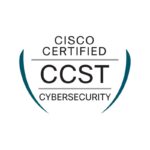The cybersecurity industry is booming like never before. With over 750,000 cybersecurity jobs available in the US alone and a global demand surge of 6 million professionals expected, there has never been a better time to break into this field. The best part? You don’t need to spend thousands of dollars on expensive degrees or certifications to get started.
I remember when I first wanted to learn cybersecurity five years ago. The barrier to entry seemed overwhelming – expensive courses, complex requirements, and no clear path forward. Today’s learners are incredibly fortunate. The landscape has completely transformed, with world-class institutions and tech giants now providing free, top-notch cybersecurity training.
Why free cybersecurity courses matter in 2025
The cybersecurity skills shortage has reached critical levels. According to recent studies, 82% of employers face a cybersecurity talent pool shortage. This creates an incredible opportunity for career changers and newcomers to the field.
“At 45, I’ve spent my whole career as a waitress and had minimal experience with computers,” shares one TryHackMe user who recently started learning cybersecurity after her divorce. “I recently purchased a premium subscription on TryHackMe to see if I could absorb new information. I’m currently working on Linux shells, and I’m really enjoying the process!”
This real story perfectly illustrates how accessible cybersecurity education has become. Age, background, and prior experience are no longer barriers to entering this field.
Top platforms for free cybersecurity courses
Coursera: university-level education for free
Coursera leads the pack with partnerships from prestigious universities. The University of Maryland’s “Cybersecurity for Everyone” course has earned 4.7 stars from over 3,000 reviews. This beginner-friendly course covers cyber risk, security policies, and governance fundamentals.
Stanford University contributes with their renowned “Cryptography I” course, boasting 4.8 stars and 4,400+ reviews. The course dives deep into encryption standards, public key cryptography, and secure coding practices.
The platform offers 21 pages of free cybersecurity courses, making it one of the most extensive free resources available. Popular searches include certification courses, project management, and AI courses – showing the diverse interests of learners.
TryHackMe: hands-on learning that feels like gaming
TryHackMe has revolutionized cybersecurity education by making it interactive and engaging. With over 4 million learners and 930+ rooms, it’s become the go-to platform for practical cybersecurity skills.
The platform offers 350+ free rooms covering everything from basic Linux commands to advanced penetration testing. What makes TryHackMe special is its gamified approach – learners earn points, compete on leaderboards, and solve real-world scenarios.
“TryHackMe has over 4 million learners, over 930 rooms, and is run by just over 100 people,” explains the co-founder in a recent Reddit AMA. The platform almost went bankrupt in 2019 due to unexpected cloud service bills, but their perseverance paid off.
Google cybersecurity professional certificate
Google’s cybersecurity certificate program represents a massive investment in workforce development. The program is offered through Coursera in partnership with Google and provides internationally recognized certification.
The median entry-level salary for Google cybersecurity certificate holders is competitive, making this an attractive option for career changers. The program covers network security, cryptography, secure coding practices, and incident response.
IBM cybersecurity analyst professional certificate
IBM’s program consists of 14 courses designed to be completed in 4-6 months. The curriculum covers endpoint security, computer security incident management, Linux administration, and penetration testing.
Over 244,917 students have already enrolled in this beginner-level program. No degree or prior experience is required – you just need to be comfortable working with computers.
The program includes hands-on experience with industry-specific security tools and real-world cybersecurity case studies. Graduates can earn up to 10 degree credits and 4 ECTS credits through ACE and FIBAA recommendations.
ISC2’s one million free certifications initiative
The International Information System Security Certification Consortium (ISC2) has launched a program to offer one million free cybersecurity certifications. Their “Certified in Cybersecurity” (CC) certification is aimed at entry-level professionals.
The initiative includes free online self-paced training and free certification exams. After passing, you only pay a $50 annual maintenance fee to keep your certification. This is a significant value, given that traditional cybersecurity certifications can cost hundreds or thousands of dollars.
Specialized learning platforms
Cybrary: the netflix of cybersecurity
Cybrary provides over 1,200 expert-led courses and labs with a generous free tier. Free users get access to over 50 courses, including certification prep content, virtual labs, and one foundational career path.
Over 3 million cybersecurity practitioners trust Cybrary for their professional development. The platform focuses on hands-on learning with virtual labs that simulate real-world scenarios.
SANS institute: industry gold standard
SANS Institute has made parts of their premium training available for free. They offer free course demos for 65+ courses, allowing learners to preview content and evaluate difficulty levels.
Their SEC275 “Foundations – Computers, Technology, & Security” course segments are available for free. They cover computer hardware, CPU fundamentals, and networking protocols like SMTP.
University of Helsinki: academic rigor for free
The University of Helsinki offers a 6-course cybersecurity series absolutely free. The program covers web software development, vulnerability analysis, risk assessment, and EU cybersecurity legislation.
The complete series offers 10 ECTS credits for Finnish residents, making it equivalent to university-level education. Each course includes programming assignments, essays, quizzes, and security puzzles.
Industry-specific training programs
Amazon Web Services (AWS) training
AWS provides extensive free cybersecurity training through their skill builder platform. The courses cover cloud security fundamentals, identity and access management, and security best practices for AWS services.
Microsoft learn platform
Microsoft’s learning platform offers multiple free courses covering different cybersecurity aspects within the Microsoft ecosystem. The content ranges from basic security concepts to advanced cloud security implementations.
Cisco networking academy
Cisco’s “Introduction to Cybersecurity” course provides a basic overview of cybersecurity as a career path. The course includes a final exam and certificate upon completion. It’s valuable for understanding different types of attacks and defensive techniques.
Splunk education
Splunk offers an extensive free course catalog focusing on Security Information and Event Management (SIEM) skills. Courses cover report creation, dashboard development, log querying, and security investigations.
Getting started: your learning roadmap
Week 1: Foundation building
Begin with IBM SkillsBuild or Google’s cybersecurity fundamentals. These courses provide essential vocabulary and concepts needed throughout your journey.
Week 2-4: Hands-on practice
Join TryHackMe and complete their “Starting Point” modules. The platform offers 4 free tier 0 modules that introduce basic hacking concepts through guided exercises.
Month 2: Specialization exploration
Try different platforms to find your preferred learning style. Some people thrive with TryHackMe’s gamified approach, while others prefer Coursera’s academic structure.
Month 3-6: Certification preparation
Work toward a recognized certification like ISC2’s CC or prepare for CompTIA Security+ using free resources from multiple platforms.
Real success stories from the community
The cybersecurity learning community is incredibly supportive and welcoming. TryHackMe’s co-founder started the platform because “we experienced how difficult it was to break into cyber security – it was too black box, and nothing was affordable or guided.”
Many learners share their success stories across forums and social media. Career changers from fields like food service, retail, and other industries successfully transition into cybersecurity roles using these free resources.
Building practical skills
Virtual labs and simulations
Hands-on experience is key in cybersecurity. TryHackMe, Cybrary, and Hack The Box offer virtual labs for practice without risk.
Capture the flag competitions
CTF events are great for learning. TryHackMe has nearly 400 challenges, from simple to complex, helping you grow your skills.
Community engagement
Get involved in cybersecurity communities on Reddit, Discord, and LinkedIn. The community is supportive and helpful to newcomers.
Overcoming common challenges
Information overload
With many resources available, it’s easy to feel overwhelmed. Start with one platform and complete courses before exploring others.
Imposter syndrome
Many feel intimidated by the technical aspects. Remember, every cybersecurity pro started as a beginner. Focus on consistent practice and patience.
Staying motivated
Learning cybersecurity can be tough. Set achievable goals and celebrate your progress. Join groups or find partners to stay motivated.
The future of free cybersecurity education
Free, high-quality cybersecurity education will keep growing. Big tech companies see the value in a skilled workforce, making free education a strategic investment.
Artificial intelligence is improving education through personalized learning. IBM’s program already uses AI for training in AI-enhanced security tools.
Making the most of free resources
Create a learning schedule
Consistency is more important than intensity in learning. Spend 1-2 hours daily, not just weekends.
Document your journey
Keep notes and create a portfolio. Employers value practical experience over formal credentials.
Network actively
Join virtual meetups and online discussions. Many jobs come from networking, not just applications.
Conclusion: your cybersecurity journey starts today
The cybersecurity field offers great opportunities for those willing to learn. With millions of free resources, the only barrier is your commitment.
Whether 18 or 45, changing careers or starting fresh, the community welcomes you. Companies are eager to hire those who show practical skills, regardless of background.
Begin with one platform today. Choose based on your learning style. The most important step is the first one.
The industry needs you. With free training available, now is the best time to start your journey.
























